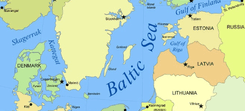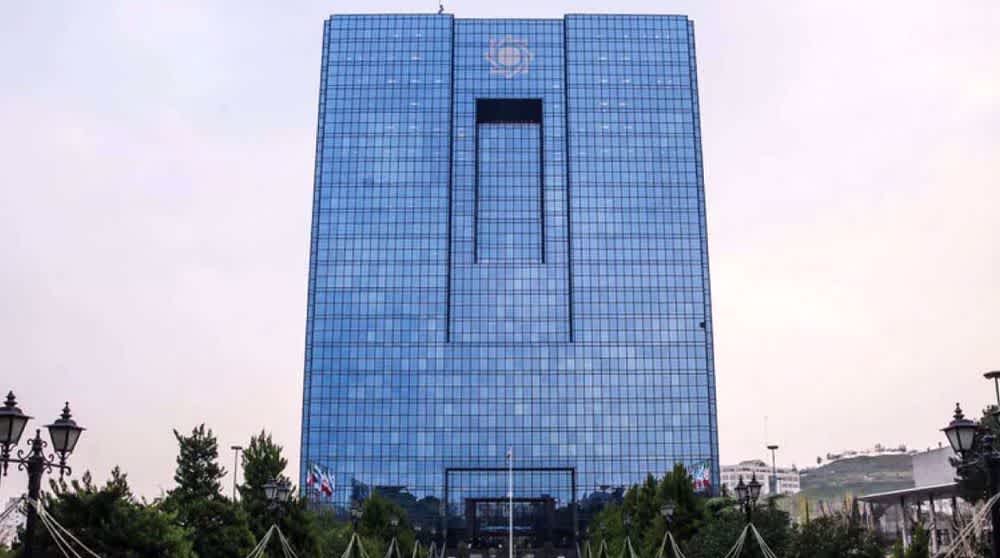
You might ponder how, after 44 years of economic setbacks in Iran, it takes years for the country to return to the path of financial growth and freedom. However, we can assert that it's more achievable than it might appear.
In a speech by Crown Prince Reza Pahlavi within the context of the "Peyman Novin," he laid out a clear roadmap for achieving economic growth after the arbitration.
To elucidate the model and its solutions, he draws a parallel between the Baltic countries and Iran post-revolution. These nations, by adhering to fair and just conditions, have effectively propelled their economies forward and enhanced the living standards of their citizens.
For instance, right after breaking free from the Soviet Union, the Baltic countries adopted five fundamental principles in their economic agenda:
Financial system transparency
Government budget transparency
Welfare and security of workers and employees
Guarantee of investor property rights
Acceptance of impartial arbitration rules in resolving financial and commercial disputes
Today, the verification of countries' commitment to these conditions is the subject of the rules and criteria of five reputable international institutions.
Financial Action Task Force (FATF)
International Partnership for Integrity (IBP)
International Labor Organization (ILO)
Multilateral Investment Guarantee Agency (MIGA)
Stockholm Chamber of Commerce Arbitration Institute (SCC)
Each of these institutions, with a specialized program and the introduction of operational solutions, then assesses performance, which is the cause of the prosperity and dynamism of the economies of different countries.
For a better understanding, I will briefly explain the institutions mentioned:
FATF: The goal is to combat money laundering and terrorist financing. This body divides countries into three categories.
A category of countries that are fully in line with the recommendations of this group and have implemented them. This group is mostly developed countries.
The second group is countries that are in progress and in line with the specified standards.
The third category is countries that have not cooperated with this group and are considered to be at risk of money laundering and terrorist financing. Currently, Iran and North Korea are on the blacklist of this group.
How does being on the blacklist affect the economy?
Being on this list does not prevent trade contracts, but countries that have commercial relations with Iran to avoid freezing of real and legal accounts and heavy fines are forced to comply with certain rules that are costly for them. This leads them to refrain from trading with Iran, which in turn leads to a significant decrease in trade balance, reduced production, a decline in the overall stock market index, and a decline in the value of the rial, etc.
IBP: This institution provides the concept of budget credibility operationalizes it within the framework of the financial management system and audits the credibility of budget institutions. According to the Crown Prince, "In terms of budget transparency, Iran must move from today's darkness to a score of 60 or higher." According to Mr. Amir Abdollahian, the current Foreign Minister of the criminal faction, "Governments with budget transparency have better financial performance and lower levels of corruption. Budget transparency means that all citizens of a country can access information that allows for the evaluation of the allocation of different expenses.
In 2019, Iran's budget scored less than 30 out of 100 in the transparency index. The global average is above 45 points. Iran ranks 92 out of 118 countries, which is expected or optimal to be 61 out of 100.
Since the start of sanctions, performance reports of the budget in Iran have not been published by the Central Bank.
This lack of transparency is itself a major obstacle to the investment sector, both domestic and foreign.
ILO: This institution reviews labor matters, in terms of job security, health, safety, insurance, etc.
MIGA: This is one of the subsidiaries of the World Bank Group that offers political risk insurance. Membership in this group shows security in domestic and foreign investment.
SCC: The Stockholm Chamber of Commerce is responsible for resolving disputes in commercial contracts and arbitration in the field of development of major engineering projects, construction, oil and gas, and mining. This institution creates conditions for the resolution of disputes. In the end, Crown Prince Reza Pahlavi describes the way out of the current situation in the country as much simpler than we think, given that Iran, with its much more abundant natural resources, can achieve growth and prosperity.
However, the opinion of Dr. Manouchehr Farahbakhsh on the roadmap for the new covenant is as follows:
"If these issues are to be resolved on the basis of a politics-centered system, it will take forever." That is if society is not faced with another market thief. Therefore, the most important and sensitive move after the collapse was to establish an economy-centered system that Crown Prince Reza Pahlavi should take on.
The current deplorable state of the Iranian economy is clearer than it needs to be, but getting out of it is very important both in international and domestic matters, and the political and economic axis and the trust of the people are all.
[This is a continuation of the author's personal opinion] Regarding the crucial internal economic policies, shortening the grip of the corrupt elites who monopolize various commercial sectors and engage in extensive interventions will significantly curb many problems and instances of corruption. However, beyond these aspects, I find it necessary to focus on the most vital economic institution within the country – the "Central Bank."
With a simple search on the internet and comparing the roles of the Central Bank of the Islamic Republic and the Federal Reserve of America, the absurdity of the role of this institution in Iran becomes evident.
Even more amusing is the topic of privatization policies in Iran, which has essentially handed the reins of trade and economic activities to a handful of rent-seeking and corrupt individuals.
First and foremost, significant changes must occur in the management of the Central Bank within the country's economic sector.
It should not be entirely government-controlled but rather a semi-private entity. This is because tracking, evaluating, and investigating corruption or judicial decisions are practically impossible if this government institution retains control.
There is no transparency within the Central Bank of the Islamic Republic regarding reporting financial indicators and the country's financial reports. Investors, especially in the stock market, know that this market follows no law except for repeated bubbles, theft, and charlatanism. If investors are informed through complete transparency of their relevant stock reports and can invest securely, production in this regard will be in a better position.

In the current situation, a five-member supervisory team within the Central Bank of Iran, known as the "Supervisory Council," is responsible for overseeing the activities of the Central Bank. Nonetheless, corruption within this institution is unbelievably rampant.
In the Federal Reserve of America, the Federal Open Market Committee, consisting of twelve members, holds public sessions every six weeks to oversee the activities of central banks and the decisions of the central bank governor. In monetary policies, they influence the US economy by buying or selling securities through the central bank. Transparency is such that traders worldwide use online trading for their transactions.
An interesting question about removing zeros from the currency is: What effect does this action have? The answer is that if this action is taken without rigorous contractionary measures and calculations, it will not only be futile but also significantly exacerbate inflation.
If, based on removing one zero, the value of the currency is supposed to increase tenfold according to the country's currency value, otherwise it will not affect the economy. Instead, it will lead to a decline in the value of the currency, a more chaotic stock market, and higher inflation. This is a task that the corrupt faction is incapable of accomplishing. However, considering the bright future of Iran's economy and its flourishing and vibrancy, increasing the value of the national currency is the best action after the currency's value has become significant; the removal of zeros is a necessary step.
Source:
1. Globally to make budgets work for all people 2. Crown Prince Reza Pahlavi (Payman Novin): Economic Disentanglement Roadmap of the Country






